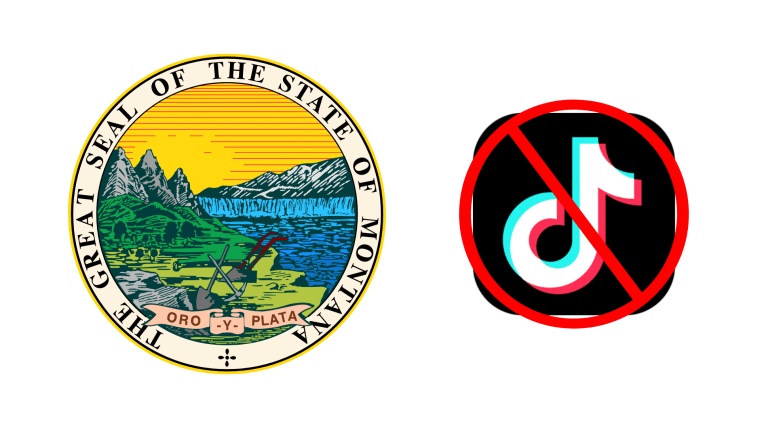
Legislators in the state of Montana in the United States have passed a bill to ban TikTok from all mobile app stores available to its residents and it is awaiting the approval of Governor Greg Gianforte to be enforced.
If Gianforte gives the bill the green light, Montana will effectively become the first state in the country to pass an outright ban of the Chinese social media application at a point when federal authorities and other nations are considering similar measures.
The text of the Senate Bill No. 419 introduced by the state’s Republican Senator Shelley Vance emphasizes that the People’s Republic of China has an interest in gathering information from US residents, including those living in Montana, and that the country can prompt ByteDance, the parent company of TikTok, to share information about its users including their physical location.
In addition, the bill asserts that TikTok may be stealing information and data from users to share it with the Chinese Communist Party while the platform may intentionally fail to moderate and filter out content that is dangerous for minors including sexually offensive, violent, and racist videos.
App Stores Will Pay a $10,000 Per Day Fine if They Fail to Take Down TikTok
Mobile app stores such as the Apple App Store and the Google Play Store will be immediately prompted to take down TikTok from their app store in Montana and will be fined $10,000 per day if they violate this provision.
The bill also indicates that, in the event that TikTok is acquired or sold to a company that is not from a country that is considered an adversary of the United States, the ban will be immediately lifted.
This TikTok ban in the state of Montana will come to effect on 1 January, giving the parent company on the social network more than enough time to consider an acquisition.
Also read: Best TikTok Spy Apps: Top 10 for April 2023
Governor Gianforte has declined to make comments about his willingness to approve or veto the bill and a spokesperson from his office only said that he “will carefully consider” all bills that get to his desk.
Meanwhile, TikTok plans to fight the bill in court if it is ultimately passed. In this regard, Brooke Stroyke, a spokesperson for ByteDance, said in a statement that the sponsors of the bill have admitted that they don’t know how they will enforce the ban and called the legislation an “attempt to censor American voices”.
The American Civil Liberties Union (ACLU) also issued a statement urging the public to “strongly oppose” the text as it violates the First Amendment of the US Constitution. “Passing this legislation would flout the First Amendment and would trample on Montanans’ constitutional right to freedom of speech”, the document asserted.
Hostilities Against TikTok Continue Despite its CEO’s Congress Appearance
On 23 March, the Chief Executive Officer of TikTok, Shou Zi Chew, appeared before the House Energy and Commerce Committee to testify on how the app is working to appease the concerns brought forward by both lawmakers and law enforcement agencies.
Most of the members of the Committee were not there to hear Chew’s remarks but rather to reaffirm their view that the app is dangerous and should be banned. Meanwhile, the CEO attempted to explain that the app’s practices are pretty similar to those of its competitors in the US like Meta Platforms (META) and Snapchat (SNAP).
TikTok has already been hit with a federal-level ban on all government-issued devices amid fears that the application could be used as a backdoor for the Chinese Communist Party to access the data of government officials all across America.
In Montana, this mandate has already been enforced. However, banning TikTok from mobile app stores would make the app unavailable to the general public – a bold move that does touch on civil rights and that could be rightfully challenged in court.
It remains to be seen if other states push forward similar initiatives or even if the Montana vs. TikTok case escalates to the point that it is heard by the US Supreme Court. In any case, it is a strong precedent that others could take up to keep fighting the app until it’s finally banned countrywide.
Other Related Articles: